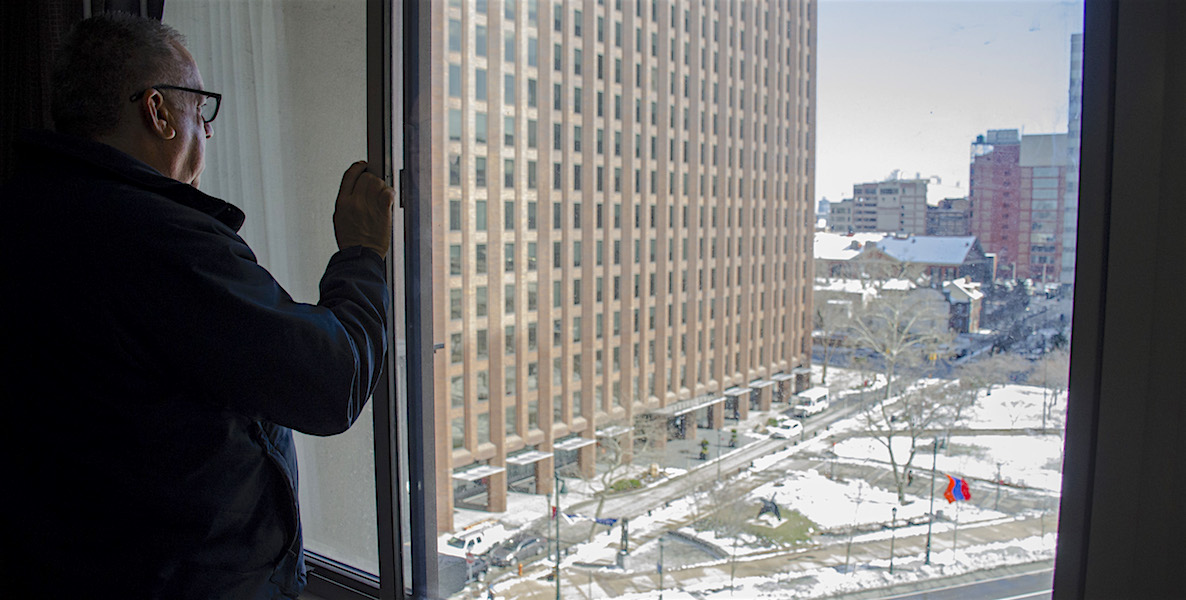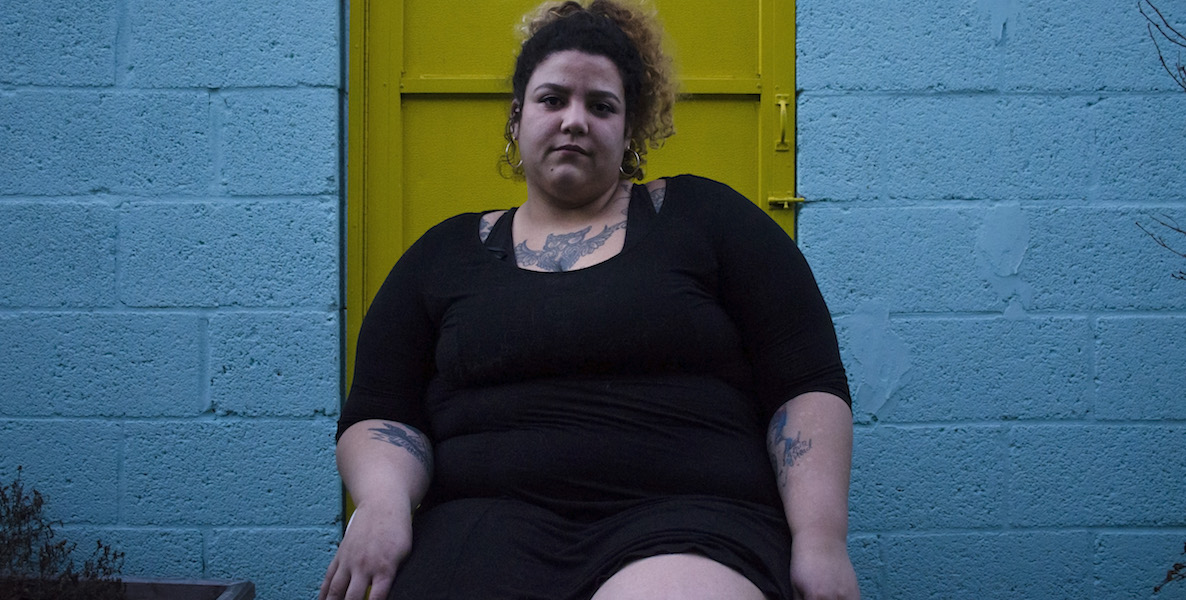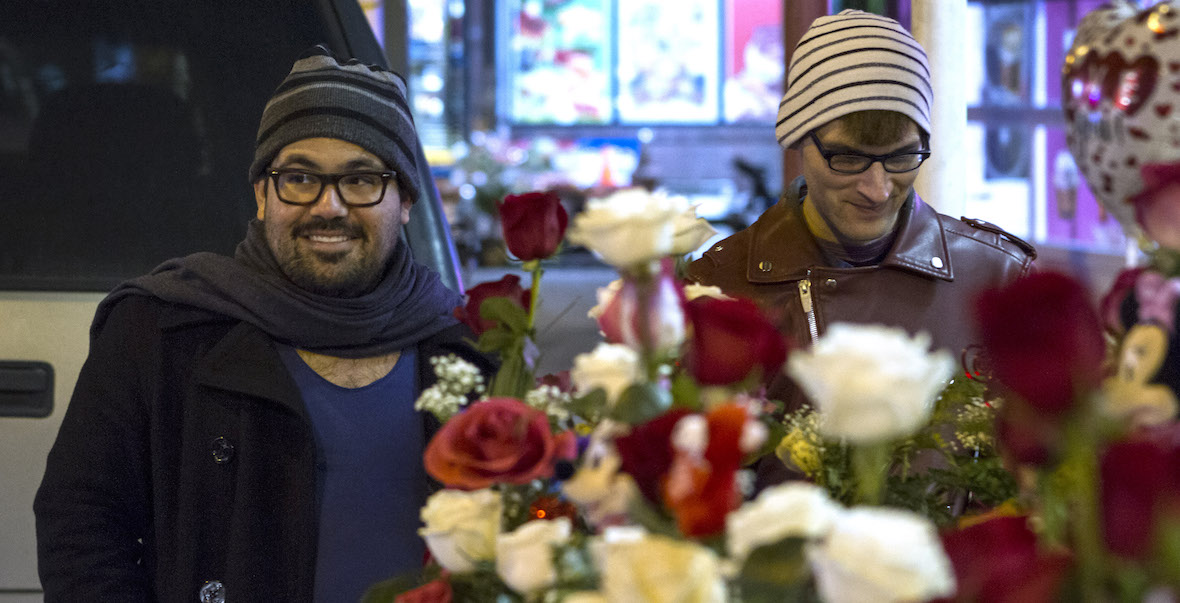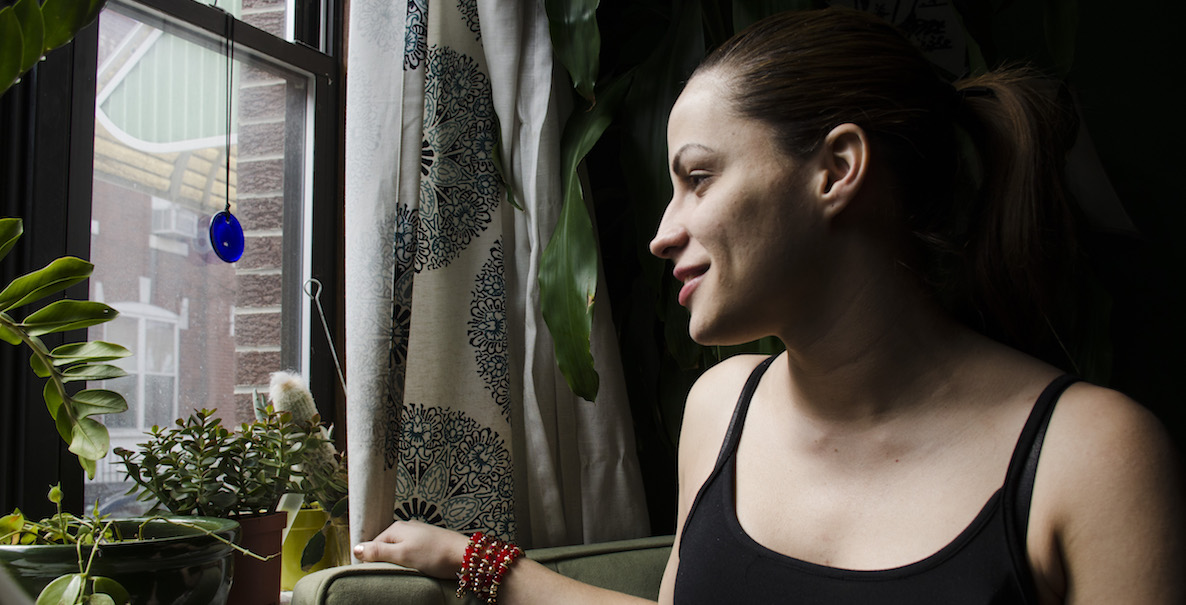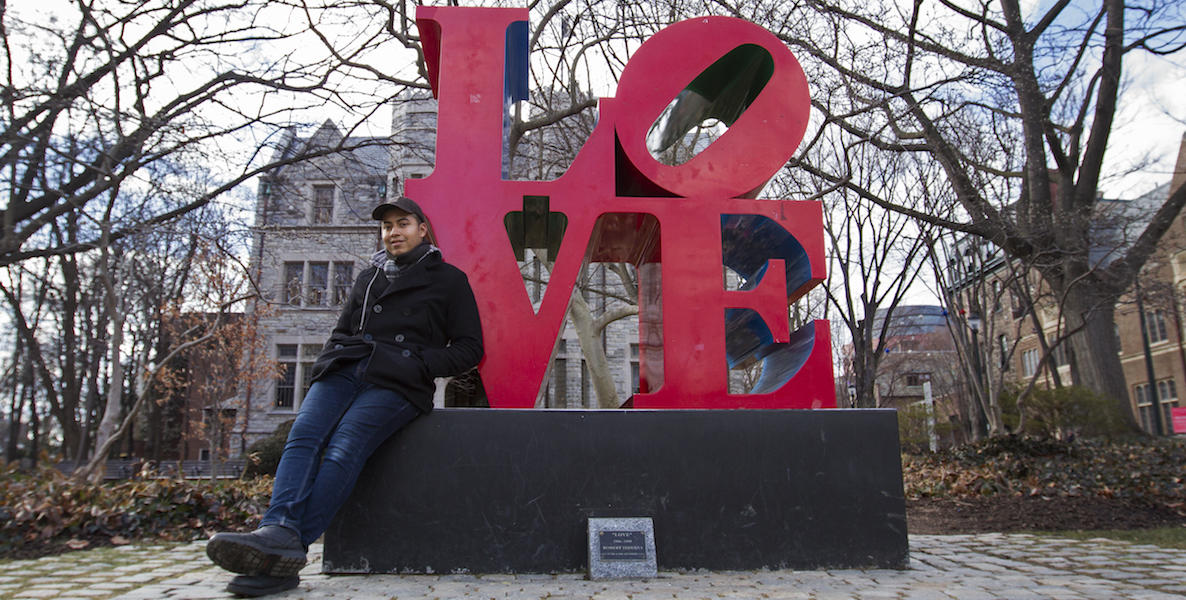Morovis is nuzzled in the Cordillera Central, the large chain of mountains that runs through Puerto Rico from east to west. Like a spinal cord holds up the body, the Cordillera seems to tie the coastal plains on the north and south together. For centuries, the mountain range has protected the island from the furious winds that hurricanes spew annually on the island.
Growing up in Morovis, Mari Rivera was, paradoxically, both exposed and nurtured by the natural and human environment around her. In the ninth grade, when Mari told her mother she was a girl, she was kicked out of her home after being told they had “raised a boy.” Transphobia followed her to school and down the streets. She sometimes sold packs of cigarettes to have extra money to eat and spend.
Yet, the 25-year-old had found herself and her people in her rural hometown. It was the streets where she had played as a child. It was where she had, at age 18, decided she would “be who she was according to her identity. A woman 24/7.” It was where she had first experimented with her appearance: across the road from her middle school was the Walgreens where she had first bought makeup. When her mother rejected her for being transgender, Mari had found acceptance and housing with her extended family, neighbors, and friends. “That’s the thing about Puerto Rico, if you are hungry and in need of something to eat, you knock on your neighbor’s door, and they will feed you,” Mary says.
And so, Mari stayed home. “I liked living where I was born because, for me, to heal, reliving what I have overcome gives me the will to be stronger and to carry on,” she says. Before Hurricane Maria, Mari operated machinery at a sewing factory in Orocovis, a municipality that shares borders with Morovis. She enjoyed her work and got along with her fellow colleagues, but had a difficult time with management because of her gender identity.
Mari is slowly finding companionship and community in the city. She has quickly connected with Puerto Ricans and members of the LGBTQ+ community here. When she can’t speak Spanish, Mari has come up with an ingenious way to communicate with others in English: Google Translate.
“One time, when I tried to use the women’s bathroom, they formed a ruckus,” she recalls. “They told me I had to use the men’s toilets because I was a man, so I did. But I was not emotionally prepared to go to the bathroom and see men in the mirror.” Going to work was emotionally taxing, but Mari knew how difficult getting work as a trans person could be, so she stayed quiet. Though Mari was a responsible and hard-working employee, she did not pass the three month probation period at the factory. Out of work, she moved out of her studio to a shared family home with her older brother.
When the cyclones came to Morovis, a municipality part of that protective spine of jungle that kept Puerto Rico safe during natural disasters, they razed the trees off the backs of the mountains, but kept the island safer. La Cordillera Central, however, had not been strong enough to resist Maria’s fury.
Mari sheltered herself with a friend during the storm. Coming back home the day after was traumatic: All the windows had flown away, even though the house had been fortified with storm shutters. Water had inundated her bedroom, and she had lost many of her belongings. While her brother chose to remain in the dilapidated home, Mari did not feel that was an option for her. The friend she stayed with during the storm took her in. When she left to Florida, her friend’s mother had allowed her to live with her until Mari figured out her next steps.

“I had heard things were better in the United States, that there was less discrimination,” she says. Mari had dreamed of living in the US for years. However, she had never had the opportunity to leave Puerto Rico. Hurricane Maria seemed like a crossroads of fates. When a childhood friend told her she could come live with her in Philadelphia, Mari jumped at the opportunity. She hoped to finally get her gender reassignment surgery and change her legal name in her newly adopted city.
On the early morning of October 8, Mari found herself in Philadelphia’s airport, about to take the first steps of her new life. When she called her friend, the phone rang and rang. No response. When Mari tried to message her friend on Facebook, she was blocked from even seeing her childhood friend’s account. Mari was bewildered and alarmed: She knew no one in this city, spoke no English, and did not understand why her friend, who had encouraged her move to Philly, bailed last minute.
![]() She called and texted the boyfriend of the friend she’d stayed with during the storm, who had family in Philadelphia. However, because Maria had pummeled through the energy grid, it took hours for her messages to get through. Mari finally reached him at 5 am, and he coordinated for his sister to pick her up at the airport. After being driven around the city, Mari was dropped off at an apartment the boyfriend’s relatives owned and left her there alone.
She called and texted the boyfriend of the friend she’d stayed with during the storm, who had family in Philadelphia. However, because Maria had pummeled through the energy grid, it took hours for her messages to get through. Mari finally reached him at 5 am, and he coordinated for his sister to pick her up at the airport. After being driven around the city, Mari was dropped off at an apartment the boyfriend’s relatives owned and left her there alone.
This strange, bare apartment felt desolate. Mari did not understand the language of this new world she was supposed to navigate. She did not know where to start looking for work. The support system she expected was nonexistent. “I was heavily depressed. You close yourself off because you know no one and nothing, nothing, nothing at all,” she says. When her mother called her, she told her she was doing well and with the friend she’d originally planned to stay with. Mari did not want to worry her.
When her friend and boyfriend split, Mari was kicked out of the flat, even though she paid rent. When she sought out rental assistance or transitional housing with FEMA in Philadelphia, the federal agency accused her of falsifying her identity because her name and photo did not match her actual appearance. Even though she provided the documentation required, the agency claimed that the social security number she provided did not match up to the individual she claimed to be.
“I even got a new social security number because of what they told me,” Mari says. “But when my mother opened a case for me back in Puerto Rico requesting help from FEMA, my old social security number popped up with no issues. FEMA refused to help me because they thought I was committing identity theft.”
Despite the obstacles, Mari has not looked back, instead choosing to overcome. She is now staying with the cousin of her friend’s ex-boyfriend, who was one of the people who picked her up at the airport. Every morning, Mari wakes up at 4 am, so she can make it to the bus stop by 5:20 am. After that, it’s an hour long commute to her new job at a fish food factory. The daily tasks at the factory are enjoyable, and the environment is much more trans friendly than her old workplace in Orocovis: “They let me go to the women’s bathroom, and everyone addresses me as Mari.”
“It was a difficult change. People here live in their own worlds,” she says. “Back home in Puerto Rico, I was connected to people all the time. I had a lot of friends, and I was everywhere all the time. I like being active and working. All of a sudden, everything was still and lonely.”
However, her pressing financial needs are pushing Mari to look for other work opportunities. Because the factory is so far away from where she is staying, her $8.50/hour wage only “covers for transportation, really. I cannot live with such little pay. Every day I get home by 7pm, to wake up at 4am and repeat the cycle. What kind of a life is that?”
But she worries about the difficulties she might encounter looking for work. She would like to work in a customer service role, having loved her work at the drive-in window of a bakery back home. “The customers loved me because I was always smiling,” says Mari. However, that kind of role is not an option yet, since she doesn’t speak English.
Mari is also apprehensive of the discrimination she might face as a trans woman. “Back in Puerto Rico, I would send out my resume to 70 places, and hear back from 4 or 5,” she says. “Once Mari, not Ricardo, showed up to the interview, they would tell me they’d call me back and never did. I’m afraid that will happen again here.”
Although Mari is on a hormone therapy regime and actively pursuing a gender reassignment therapy, getting medical care has been challenging. The first clinic she went to offered to her a hormone prescription that had someone else’s name blacked out with a marker: “People need different hormones depending on what they need. How could they do that? It was dangerous.”
![]() At her new medical center, Mari has received individualized attention and better health care. However, “I often have to wait for an hour on the phone so I can reach someone who speaks Spanish.” She cannot advocate for herself in English, and often brings others along to appointments to translate. And getting her sex reassignment surgery has been riddled with bureaucratic hurdles. “I came to the United States, in part, because it was easier to get the operation done here for free or at a reduced cost,” she says. When she does come in for appointments, she worries that they are not analyzing or doing lab work to see how her body is reacting to the hormones she is getting.
At her new medical center, Mari has received individualized attention and better health care. However, “I often have to wait for an hour on the phone so I can reach someone who speaks Spanish.” She cannot advocate for herself in English, and often brings others along to appointments to translate. And getting her sex reassignment surgery has been riddled with bureaucratic hurdles. “I came to the United States, in part, because it was easier to get the operation done here for free or at a reduced cost,” she says. When she does come in for appointments, she worries that they are not analyzing or doing lab work to see how her body is reacting to the hormones she is getting.
“Sometimes I want to go back to Puerto Rico, but over there there is nothing for me after the hurricane for now,” she says. “I can’t go back without my reassignment surgery or my legal name change.” Mari hopes that eventually, with her experiences navigating her new life in Philadelphia, she can support other Puerto Rican trans women arriving to the United States after Maria and connect them to the resources they need. And she hasn’t closed off the possibility of moving back, if she had better professional opportunities on the island.
Philadelphia has been a culture shock for Mari. “It was a difficult change. People here live in their own worlds,” she says. “Back home in Puerto Rico, I was connected to people all the time. I had a lot of friends, and I was everywhere all the time. I like being active and working. All of a sudden, everything was still and lonely.”
Even so, Mari is slowly finding companionship and community in the city. She has quickly connected with Puerto Ricans and members of the LGBTQ+ community here. When she can’t speak Spanish, Mari has come up with an ingenious way to communicate with others in English: She has conversations through the Google Translate mobile application, which lets her express what she is trying to say. She is far from her home, her culture, and her language, but she is hopeful: “I am looking into taking English classes soon. For now, Google Translate is working for me.”
Puerto Rican evacuee Mari Rivera, 25, looks out a window in her friend's South Philadelphia home. Photo by Cameron Hart


